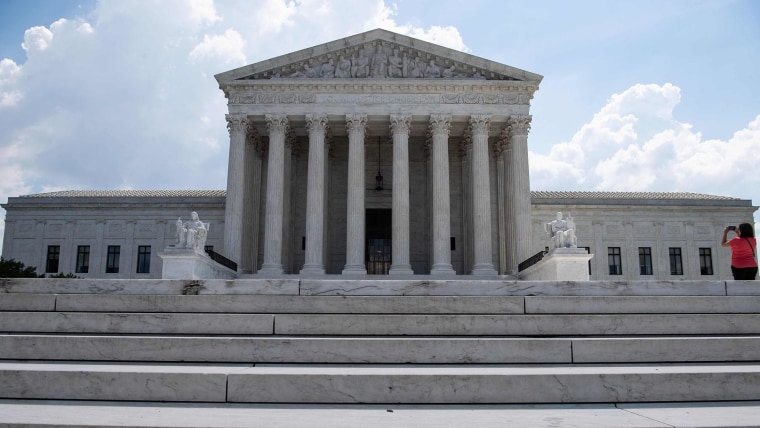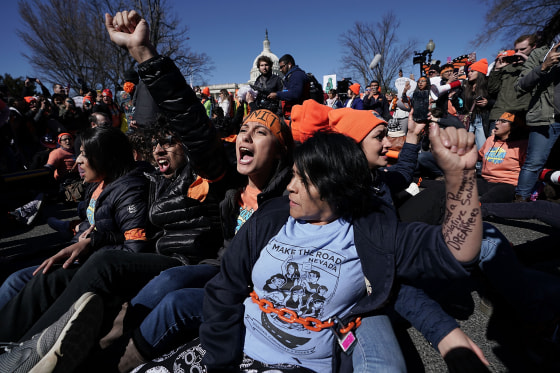WASHINGTON — The U.S. Supreme Court agreed Friday to decide the fate of DACA, the federal program that has allowed 700,000 young people — known as "Dreamers" — to avoid deportation.
The court will hear the case during its next term, which begins in October. A ruling in such a contentious case wouldn't be likely before early 2020, assuring that the Deferred Action for Childhood Arrivals program will figure in the presidential campaign.
DACA, an Obama-era initiative, allows children of illegal immigrants to remain in the United States if they were under 16 when their parents brought them to the country and if they arrived by 2007.

The Trump administration moved to end the program in 2017, but federal courts blocked that attempt. Following a brief hiatus, the government began accepting renewal applications from DACA participants, which must be filed every two years. But the Trump administration then urged the Supreme Court to overturn the rulings that allow DACA to continue.
Supporters of DACA have been largely successful in their legal fight to keep the program going. Courts in San Francisco, New York and Washington, D.C., have blocked the government from shutting it down. The Justice Department asked the justices late last year to take up those cases on a fast track and decide the issue during the current Supreme Court term. But the court declined that invitation, allowing the program to continue.
The Trump administration told the court that the program "sanctions the ongoing violation of federal law by more than half a million people," arguing it is not authorized by immigration statutes. Government lawyers also said leaving DACA in place interferes with the ability to send "a message that leaves no doubt regarding the clear, consistent and transparent enforcement of the immigration laws."
Supporters of the DACA program said that nothing in the lower court rulings would prevent the government from undertaking deportation proceedings against any individual DACA recipient if the need arose. They also noted that President Donald Trump himself has taken conflicting positions on the program, saying at one point, "I love the dreamers."
For the first several months of the Trump administration, the Department of Homeland Security indicated it would not disturb DACA. But it later acted in support of a lawsuit filed by Texas and seven other states, which said the program illegally gives those it covers the right to seek work permits.

